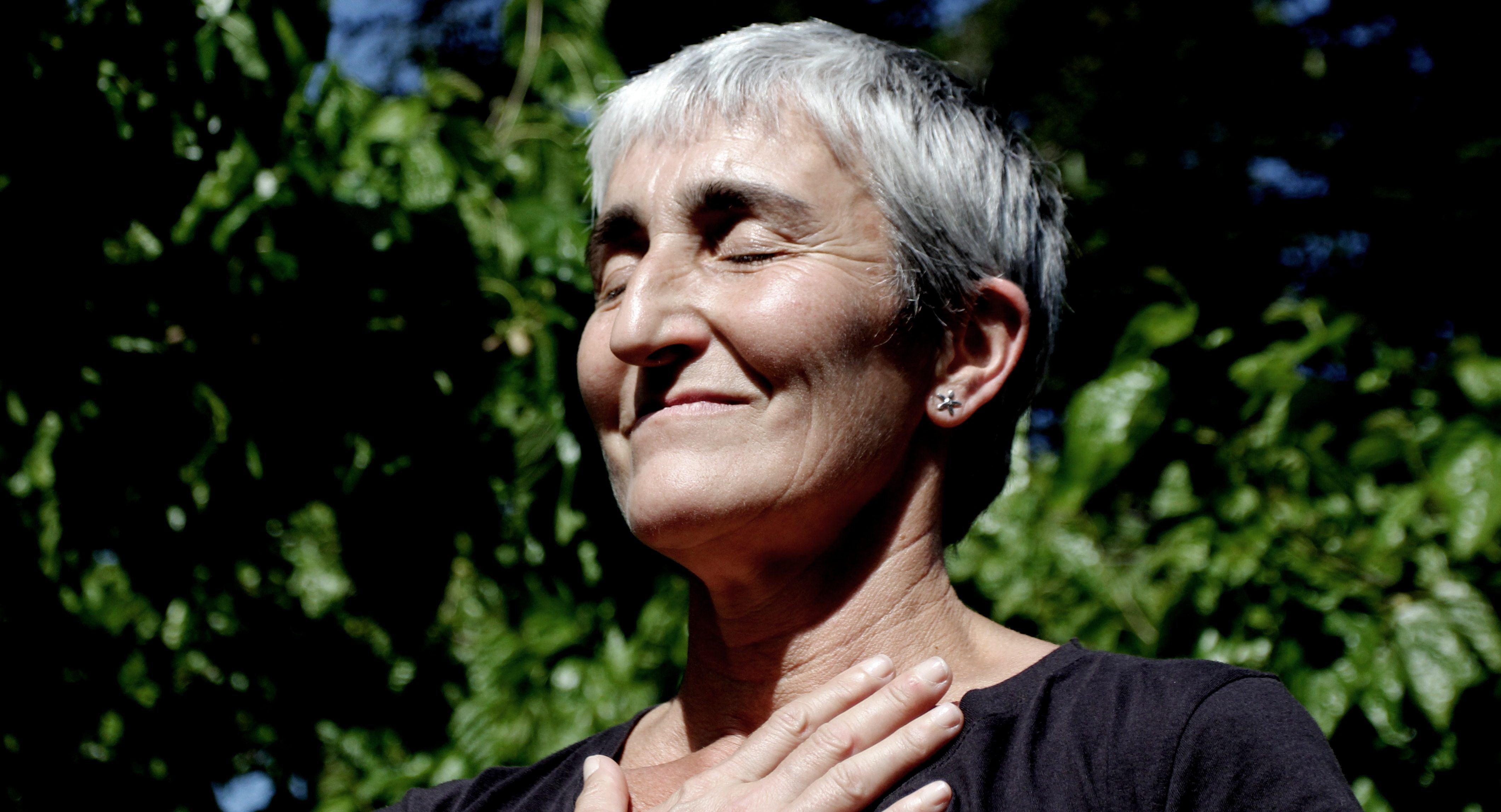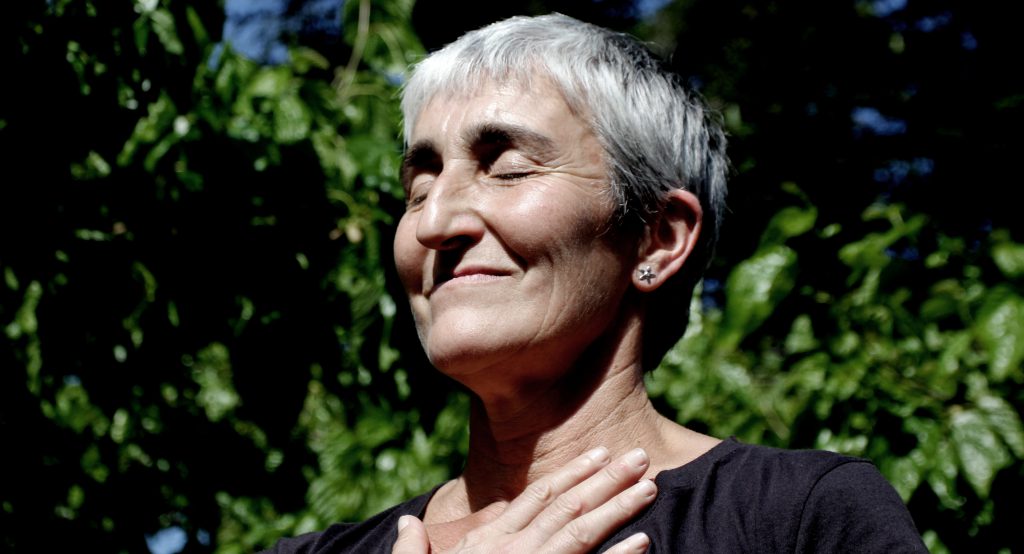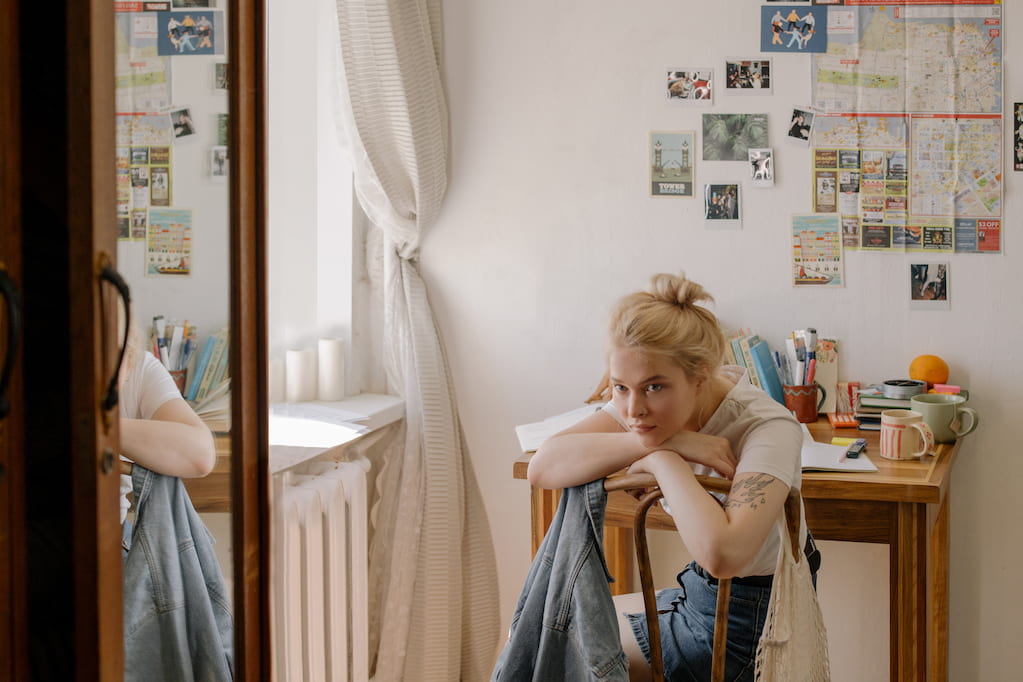How Meditation Is Changing the Mental Health Taboo

Contents
Is Mental Health Still a Taboo?
I’ve been suffering from anxiety for many years. Trust me, I know how bad it can feel, especially when you’re worried about talking to people about it. However, my life and my response to anxiety began changing after I started using Meditopia and looked at my mental well-being from a different angle.
These days, whenever I turn on the tv or go online, I inevitably encounter a story circling around mental health. There’s a celebrity talking about her depression or an author discussing anxiety attacks. From Marian Keyes and Kristen Bell to Selena Gomez, everyone seems to be discussing these topics more openly. As someone who’s dealing with an anxiety disorder myself, seeing such stories gives me hope. It makes me feel like I’m not alone. It also makes me feel relatively normal, something I sorely need. Though it also makes me wonder; does the fact that more people are open about such issues mean that mental health is no longer taboo?
as the concept of meditation becomes more mainstream, it makes it easier to discuss mental wellbeing in the public eye.

There was a time, not so long ago, when mental health problems were simply not discussed. They were deep dark secrets, private corners that no one could or should peer into or ask questions about. They were individual and family embarrassments; a source of shame. The fact that more people are discussing these things would indicate that things have changed. Yet based on my personal experience, I can say that while ‘mental health’ has become a new buzzword in pop culture and media, there is still much progress to be made in the stigmatizing and shaming around mental wellness. Part of this progress has included more discussions on the benefits of meditation and mindfulness, and it’s because of this that I’ve been more hopeful every time I see something about meditation and mindfulness in the media.
Meditation: Dispelling negative stigma around mental health
Because meditation deals directly with a person’s mental well-being, having it plastered all over media and seeing books and articles written about it, helps to bring mental health issues into the public eye. Having more and more people practice meditation with apps like Meditopia directly enables people to address mental health in both a public and private way. Again, as someone who is struggling to maintain mental wellness, this reinforces for me the knowledge that I’m not alone when I’m meditating to address my anxiety issues.
You may be wondering why this is so important. Well, barring a few close friends and family, not a lot of people in my life know that I take anxiety meds and go to therapy. Most of the people at my publishing house — where I work — don’t know this about me either. This isn’t because I’m embarrassed about seeking help. It’s because I’d rather not face the stigma some people are bound to show me. The judging looks, the quiet whispers that suddenly cut off when I walk into the room… I’m not saying that everyone reacts this way but having experienced this situation with some “friends” who saw me take my meds, I can’t say I’m keen on going through it on a daily basis. Though as the concept of meditation becomes more mainstream, it makes it easier to discuss mental wellbeing in the public eye.

The Stigma That People Face
You might be wondering what kind of stigma someone like me might face. A great example of how people with mental health issues might be stigmatized comes directly from my workplace. One of my managers often says that sharing mental problems with them is perfectly alright and that everybody should be comfortable with this. I eventually opened up to her, a little bit about my anxiety issues.
When I first told her, she was very receptive and told me to let her know if there was anything that she could do. I made the mistake of believing her and knocked on her door on a day where my anxiety had gotten so bad that it felt debilitating. When I explained the situation to her and asked for some extra time on a project, so I could take some time for myself to regroup, she did a complete 180. She started out by saying that of course my mental health was important but preceded to explain that my work was equally important. The way she was explaining my job to me, frankly made me feel like I was being chastised by a teacher for not doing my homework on time.
What’s worse, she proceeded to ask me how I expected to get ahead in this business if I intended to take a personal day for ‘every little thing’. You can imagine how discouraged and even more triggered this made me feel. I felt this heavy weight on my chest, this nausea in my stomach, and the sensation of not being able to get enough air no matter how deeply I tried to breathe in. For those of you who struggle with paralyzing anxiety, you know that we are already incredible hard on ourselves (hence the anxiety). So to get this response from my superior almost brought me to my knees in desperation. It was as if the only thing that mattered was the competitive work environment I had to excel in, just to be “successful”, even if that meant compromising my mental health and well-being. This incident proves that there are still barriers we need to get through to make mental wellbeing a topic that can be discussed thoughtfully and openly.
41% of the global population suffers from depression and of that cohort, 15% suffer from an anxiety disorder.
The situation is a bad one for people with anxiety like me. On the one hand, you strive for your own health and well-being and try to find supportive individuals to surround you on your journey. On the other, you feel cut off from others for fear of being judged and stigmatized. This is why the new stories I mentioned go some way in cheering me up. They also peek my curiosity. Clearly there are people out there who experience the same things that I do. How many of them are out there? Am I part of a multitude or am I an anomaly?

Why Mental Health Is “The Skeleton in the Closet”
I think the problem comes partly from the fact that we view people focusing on their mental well-being, as anomalies when in fact everyone should do so regularly. Everybody falls and scrapes their knees sometimes or catches a cold. Likewise, everybody feels anxious sometimes, can have anxiety attacks or get depressed. In fact, 41% of the global population suffers from depression and of that cohort, 15% suffer from an anxiety disorder.
The problem is that we don’t acknowledge this. Instead we treat mental health problems as contagious diseases that we either have or don’t. We view them as weaknesses and sources of embarrassment. When we feel anxious about something, instead of talking about it, we suppress or avoid it. According to a study done by the Mental Health Charity MIND only 31% of men discuss their worries with friends and family. You’d think that maybe women would be better in this area but that’s not the case. It turns out, only 54% of women talk about their worries and sources of anxiety with their loved ones.
It would be easy to say that we shouldn’t feel afraid of being stigmatized or judged. It would be easy to say we should own what we’re feeling and speak our truth, unafraid and unashamed. But, as we know very well, saying something and doing it are two completely different things. I would know. I started seeking out help for my anxiety about 3 years ago. It took me just over a year to be able to open up to the people closest to me about this and it’s probably going to take even longer until I can live up to my words and be courageous enough to be open about it with everyone.
How Meditation Helped with My Anxiety
In my journey toward coping with my anxiety and maintaining my mental wellness, meditation has been a key practice for me. I initially started using Meditopia as a way of learning techniques to manage my anxiety, but what I realized was that Meditopia also connected me to a larger community dealing with the same issues. In being exposed to all of these people from around the world, managing the same feelings, thoughts and emotions I was, I felt my shame and self-judgement dissolving away, day by day. When you use apps like Meditopia, you feel like there’s community with you during your practice. You see thousands of people are meditating for many different reasons, yet all for one purpose; to improve and maintain their mental well-being.
Specifically the meditations that helped me with my anxiety were the series on acceptance, anxiety and being present. While completing these daily meditations, I was constantly reminded that what I was going through was not something to be ashamed or embarrassed over. This reassurance helped me become more courageous in admitting to myself and others that I needed support in this journey. It helped me push aside any negative experiences I had when opening up, like with my employer, and continue trying to push myself to talk to my loved ones and close friends about what I was experiencing.
Now, I still haven’t been as open and candid with everyone in my life as I would have liked to be, but I’m getting there. I’m taking steps in this direction and I hope for this article to be one of them. I also hope this will help someone out there like me to understand that they’re not alone and that they can reach out for support. Additionally, I’d like to offer some suggestions to those of you who are trying to cope with anxiety, depression, and chronic stress.

Seeking Professional Help
If you have a health issue, you wouldn’t just ignore it and continue on with your life as you continually felt worse and worse. Most of us would try to see a doctor to determine a diagnosis and treatment plan. Likewise, many of us take consistent measures to maintain our health and avoid illness. We eat healthy food, exercise, practice good hygiene, get annual check-ups and take little steps to take care of our bodies.
Therapy works the same way. There’s nothing shameful about seeking out professional help for a mental health issue or for even maintaining and improving your mental wellness. Whether you’re trying to maintain a healthier mental balance in your life or need help and guidance in coping, therapists are trained and knowledgeable in giving you tools and techniques to do this. It could be anything; social anxiety, depression, eating disorders… What matters is that you address the issue with the support and guidance of someone who knows the way out of the woods.
Writing
One of the most common tools therapists use are journals or logs. Writing in journals, particularly when you’re hit with an overwhelming emotion will help you to slow things down. It’ll give you a moment to look at what’s upsetting you from afar, gain the distance you need, as well as an understanding of why you’re really feeling the way you are.
Meditation
While journal writing may not be the most expensive habit, going to therapy certainly can be. Of course, we should seek professional help when we can. Though if we aren’t able to at that time, we can always try to find alternative ways. I started meditating using Meditopia when I was still on the ropes about going to a therapist. This helped me in two ways. First, the breathing exercises and the focus that meditation required helped me to calm down my drumming heart and erratic breathing whenever I felt my anxiety mount. Second, the guided meditations showed me how I could view my own thoughts and feelings from a distance and truly come to understand them. This enabled me to see that the reason I wasn’t going to therapy wasn’t because I thought “I can handle this myself”. It was because I was afraid. Understanding that fear was the first step towards overcoming it. It inevitably proved the first step towards getting better.

Talking to people
I know that’s saying a lot, having just gone over how difficult it is to open up to people about mental health issues. Though if we don’t talk to the people that are closest to us about the things that we’re going through — our fears, worries, the things that upset us or hurt us, etc. — then we’ll end up bottling them up. The worries that build up inside us will have nowhere to go and will naturally contribute to whatever mental illness we’re experiencing. If you have an anxiety disorder, like me, you’ll only get more and more anxious until you have a full-on panic attack. If you’re depressed, you might find yourself being cut off more and more from the people you love, until you feel like you’re utterly and completely isolated.
The fact of the matter is, mental health issues can be scary—terrifying even. Which is why going through them alone is one of the worst things we can do for ourselves. It’s important to actively get the support, help and guidance we need at times. It’s even more important to remind ourselves that we are not alone, however lonely we might feel. This is why, while mental health may not be as taboo as it used to be, it needs to be pulled into the light more and more, until talking about it is as common as talking about staying home with a headache or catching a cold. Until we no longer feel that we are alone.


